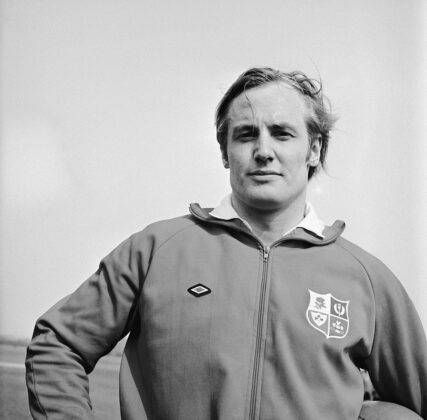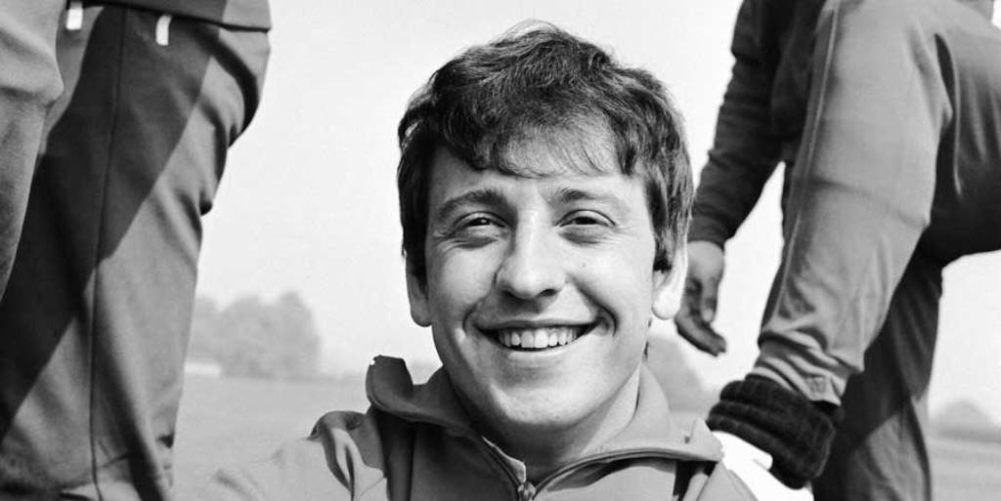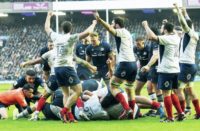Maesteg has long been renowned for its music and muscle, its male voice choirs and warrior spirit as personified by ‘Wee' Willie Davies, uncrowned flyweight champion of the world.
The old mining town has other claims to fame of a cultural nature, one well-known, the other unknown. Capel Tabor staged the first public rendition of the newly-composed Welsh national anthem in 1856, the best part of a century before the birth of ‘a cheeky little sod with a big gob' close to the disused Methodist chapel.
He still lives there as a dealer in antiques, a natural occupation for one who in a previous life specialised in leaving more than one set of battered All Blacks checking their sell-by dates. Everyone of a certain vintage will remember him by his nickname, ‘Chico' or as he would spell it ‘Chicko'.
Ray Hopkins' reign as the best player never to start a Test will surely last for as long as the game is played. Wales gave him all of 20 minutes, one quarter of one international which to the man himself felt like a recurring punishment for the unhappiest of coincidences.
His arrival in one corner of the South Wales coalfield during the immediate post-war era came as near as made no difference to that of another embryonic scrum-half in a neighbouring part of the same coalfield, Gareth Edwards.
Some 25 years later, they stood out amid the most exalted company as the best and second best scrum-halves in a world then dominated by the British and Irish Lions following their series win in New Zealand.
Despite Edwards' magisterial presence, Hopkins assembled a record unheard of before or since.
He, alone among internationals on this side of the Equator, can point to an unbeaten run against New Zealand teams over a three-year period from 1969 ending 48 years ago this very week when Llanelli achieved the last Welsh victory over the All Blacks.
“That is an incredible record,'' says David Duckham, the most cavalier of England wings and fellow Lion from the historic 1971 tour. “Absolutely incredible.''
Duckham is an expert on the subject, being the holder of a fairly incredible record of his own, as the only living Englishman, or Briton for that matter, to have beaten the All Blacks as a member of four different teams – Midland Counties, the Barbarians, England and the Lions.
That he witnessed the meteors Hopkins unleashed around Twickenham 50 years ago from the closest of quarters makes him supremely qualified on the subject. England, 13-6 ahead, were almost in cruise-control going into the final quarter when Edwards reluctantly succumbed to a tweaked hamstring.
“We didn't know much about his replacement,'' says Duckham with a faint air of exasperation. “We knew he must be good to replace Gareth but we didn't know how good.
“‘Chico' was a cheeky little sod with a big gob, a very confident player. He grabbed the game by the scruff of the neck and didn't let go until the very end. We just couldn't stop him.
“His performance was so commanding that it was almost as if he was the skipper, not a kid making his debut. He made one try for JPR and scored another himself.
“What an impact. Wales, 13-nil down at half-time, won 17-13. Chico went home a national hero. And that match got him on the Lions tour.

“We all knew he wasn't going to displace Gareth but again he made a real impact, coming on early in the first Test at Dunedin and helping get us off to a winning start. He was an absolutely brilliant tourist.
“He formed a rather bizarre friendship with Bob Hiller (JPR's full-back understudy). They were like Morecambe and Wise, the little boy from the valleys and Bob who, in Chico's eyes, was an English aristocrat.
“Whenever we felt down in the dumps on that tour, Chico's humour never failed to raise our spirits.
“At the start of the tour, each one of us was adopted by a school. The pupils would make a scrapbook of our exploits and towards the end we would be invited to address the school at assembly.
“The very thought of it terrified Chico for weeks beforehand. So half the squad went with him to boost his confidence. He found the courage to do it and I'll never forget the look on his face when he stepped off the stage, a look that said: ‘Well, that wasn't so bad after all'.”
Carwyn James thought so much of Hopkins that he signed him from Maesteg the following season as part of his grand plan to do for Llanelli what he had done for the Lions and beat the All Blacks again. For their new scrum- half, the victory marked the beginning of the end.
Chico's meteor had flamed out. He went north to Swinton for an ill-fated League career and upon returning home to Maesteg couldn't understand why some barred him from using the clubhouse (‘and to think I'd given them my jerseys to put on display.')
He had a break-down and has suffered from depression. “There'd be nights I'd lie down by there,'' he once told me pointing to the fireside in his terraced home. “And cry myself to sleep.''
Still working at 74, he sounds more like his old irascible self. “I'm a lot better than I was,'' he says. “I've always felt I did enough at Twickenham that day to keep my place for the next game, away to Ireland but I count my blessings. I've been lucky. And it's nice to be remembered.''
As for his unbeaten record against the All Blacks and New Zealand's provincial teams, blue plaques have been put up for less.

























